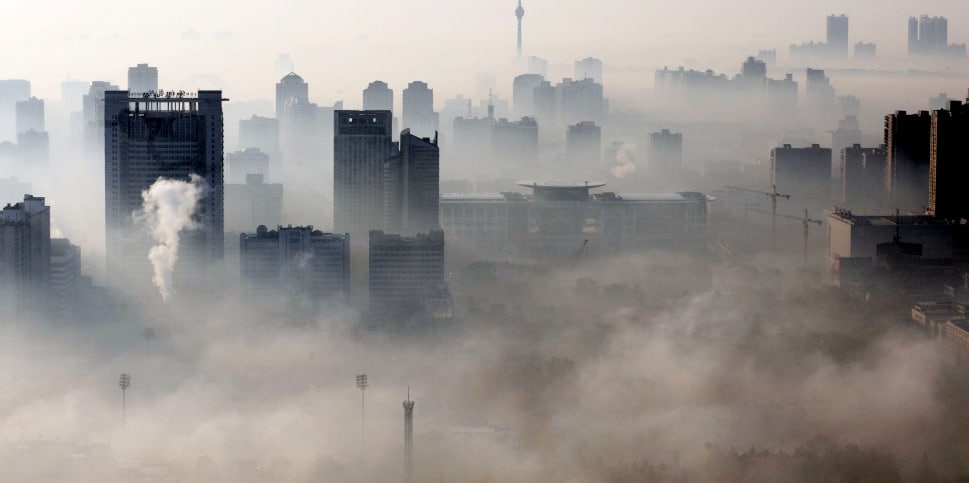China
 James Fallows points to a post on the Chinese imposition of a pollution emission tax. Fallows, who lived for several years recently in China and got to taste same, provides the talking points:
James Fallows points to a post on the Chinese imposition of a pollution emission tax. Fallows, who lived for several years recently in China and got to taste same, provides the talking points:
- Environmental carnage of all sorts is a truly major emergency in
China, ......as a potential
limit on the country's development;
- Chinese emissions
are a problem not just for its own people but also for the world. It has
now overtaken the U.S. as the biggest carbon emitter; most of the coal
that is burned anywhere on Earth is burned in China.
- Contrary
to what you might think, China's economy is relatively less efficient,
and more polluting, than those of rich countries. It takes more energy
to heat and cool the standard Chinese building than one in Europe or the
US; Chinese farmers use more water, fertilizer, and pesticide per unit
of output than is typical even with mechanized farming in the US;
Chinese factories put out more air and water pollution per dollar of
production than rich-country counterparts. On a per capita basis,
the Chinese economy uses less energy than America's. On a per dollar
(or per RMB) basis, it uses more. Simplest way to remember this point:
China's economy is nowhere near as large as America's now, but it puts
out more emissions.
- China's pollution problems are a
subset of the larger structural challenge for the Chinese economy -- in a
way that is well explained at Dance to the Revolution. For more than
thirty years price controls have been set to speed/subsidize the growth
of huge export-manufacturing industries, and to increase farm output.
Thus all these things have been kept artificially cheap: coal and
gasoline; fertilizer, pesticide, water; plus financing itself, and use
of the environment as a free good. Because they're cheap, companies and
farmers have of course used these things freely and often wastefully.
- Everyone in the Chinese economic world knows that the country is not going to move out of cheap-workhouse status, toward the realm of "real" rich-country corporate power and prosperity, unless (among other changes) it begins removing these price distortions. So that's the significance of a modest carbon tax, beyond its limited immediate environmental effect. It's part of the effort to "rebalance" the Chinese economy by removing some of its most distorting factors.





7 comments:
This only makes it more ironic that Tony Abbott will do his best to remove the Australian price on carbon by the end of the year, once he wins the federal election in September.
Bernard J.
To enliven the fusion cuisine at La Tour Lapin, chef eli should savor the phenoli diffeernce between carrots cooked on his gas fired Viking and those fired up over authentic Pekinese bitumenous coal briquettes.
Listerine never tasted this good !
Part of the problem with China is that we have convieniently outsourced a lot of pollution intensive industries...
Being last, in this case to the Industrial Revolution, really sucks...
Since China innovated coke fired blast furnaces and natural gas illumination in the Tang dynasty , it's kind of late to be deeply shocked their penchant for fossil fuels.
Snow Bunny says
Besides the serious carbon dioxide emissions, the "Asian brown cloud" is whitening the skies of the planet. (Aerosol pollution may be holding back GW.)
Some fairly handy charts here.
http://www.globalcarbonproject.org/carbonbudget/12/files/CarbonBudget2012.pdf
p19
Top four emitters in 2011 covered 62% of global emissions China (28%), United States (16%), EU27 (11%), India (7%)
p20
Chinese per capita emissions are almost equal to the EU27, and 36% higher than the global average
Dr. Seitz, that's very good, as usual:
http://vvattsupwiththat.blogspot.com/2013/02/postmodern-geochemistry-semiotic-carbon.html
Post a Comment